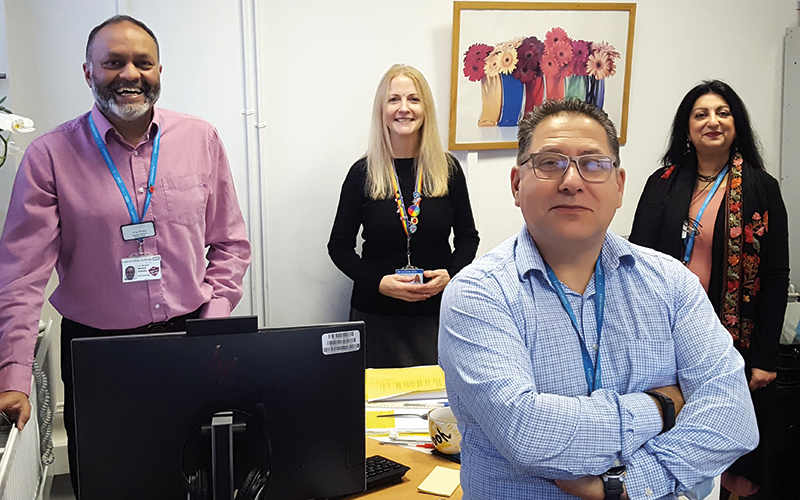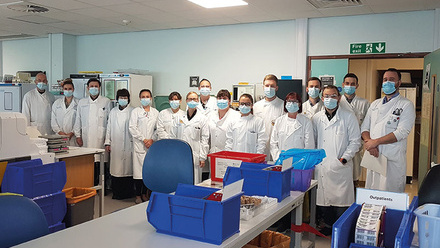My Lab: From Flu to Covid to Monkeypox

I work for North West London Pathology (NWLP) as the Divisional Manager for Infection and Immunity Sciences (I&IS). We are an NHS provider, providing accredited diagnostic laboratory services to seven hospitals in our partner NHS trusts: Imperial College Healthcare NHS Trust, Chelsea and Westminster Hospital NHS Foundation Trust, and The Hillingdon Hospitals NHS Foundation Trust, as well as the primary care service users in North West London. My service has three laboratories: the combined Infection and Immunity laboratory, the Microbiology laboratory and the Histocompatibility and Immunogenetics laboratory.
Over the years we have placed significant emphasis on creating a flexible cross-trained workforce on the basis of technology. As a result, biomedical scientists from historically unrelated fields are able to rotate to perform tests from different disciplines, including taking part in Hammersmith’s on-call tissue typing service. Looking back, our strength has been the laboratory staff’s adaptability, and flexibility to unusual service demands.
Data modelling is a key component of our division’s development planning process. This approach has been crucial over time in the implementation of well-recognised services in COVID and flu testing that have been used to support outbreak investigations in North West London over the last few years, as well as the establishment of a monkeypox testing service more recently.
The development of our approach took several years, beginning in 2012 when we actively began monitoring and informing our clinical colleagues about the local seasonal changes of respiratory viruses found in our laboratory. This data served as the foundation for developing a rapid two-hour influenza service in 2018.
When SARS-CoV-2 first manifested in December 2019–January 2020, we had already begun implementing our winter season response to flu testing. As a result, we were able to respond swiftly to a dynamic and challenging situation, and by March 2020, we had validated and started SARS-CoV-2 testing in Infection and Immunity. By April 2020 we had validated four new technologies in total and introduced alternative solutions to solve supply chain issues. These developments were supplemented by the introduction of a rapid COVID service to improve patient workflow. As the “London 1” network, we were able to do over 3000 tests per day during the peak of the COVID epidemic, including variant typing and antibody serology. Our mobilisation of divisional personnel, volunteers from other divisions and organisations was gradually replaced by a new COVID workforce.
Therefore, it was not unexpected that when the monkeypox virus first emerged, we used our experience from COVID to speedily develop in-house testing, making this choice even more crucial given the size of the sexual health services in our sector. Being in charge of such a great division, with such a diverse and committed workforce that fosters a terrific working environment, makes me feel at once immensely proud and incredibly humbled. In the words of Eddie Cantor: “It takes 20 years to make an overnight success.”



